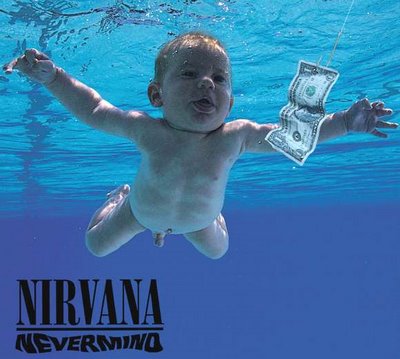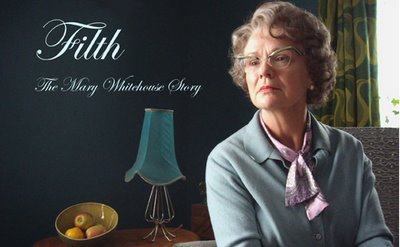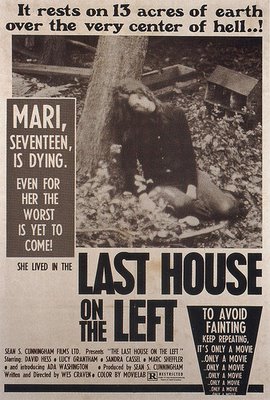Japanese torture-porn and working out how the BBFC works.
Hence Manhunt 2 had to be banned because the previous game had been (wrongly) accused of influencing a murder. Murder Set Pieces, the last non-sex work to be banned by the BBFC, was refused a certificate shortly after a ridiculous furore involving the BBFC passing SS Experiment Camp, a former video nasty, far more memorable for its original VHS cover art of a partially-clothed woman being crucified upside down while an SS trooper loomed behind her. And now, the Japanese horror film Grotesque has been banned only a number of weeks after Antichrist was causing Daily Mail hacks to wail despite not having seen it.
Perhaps they're all coincidences. It's probably not a coincidence that all three share the attribute that they're not very good. Grotesque, despite not many people having seen it, appears to be the latest tiresome, low-budget entry in the sub-horror genre of "torture porn", which existed before the likes of Saw, but which definitely kick-started its re-emergence. Doubtless some will link the film further back to its Japanese predecessors, such as the "Guinea Pig" series, notorious for their effects on ultra-low budgets and how often they've been mistaken for "real" snuff films, but this seems far more linkable to its American sisters. Plot, of which there isn't apparently much of one, revolves around a couple who are kidnapped and then degraded, tortured and assaulted until one is offered the chance of saving the life of the other, a distinctly Saw-like device, before, and I'm only guessing, both are in fact killed.
As for the BBFC's reasoning, it's difficult to ascertain as the statement which was previously up on their website purporting their decision has mysteriously vanished, leaving us with the Sun's mangling of the press release, or the BBC's rather slimmed down account. Apparently it presented "little more than an unrelenting and escalating scenario of humiliation, brutality and sadism", "[T]he chief pleasure on offer seems to be in the spectacle of sadism (including sexual sadism) for its own sake," and "Its "minimal narrative or character development," he continued, set it apart from such other "torture-themed" works as the Saw and Hostel movie series. Really? Have they honestly sat down and watched the most recent entries in the Saw series, which have nonsensically convoluted plots and where the deaths and torture devices are clearly came up with first and then the story woven around them? The key might well be the sexual sadism, with the BBFC still being cautious when it comes to sexual violence, but that might just be them covering themselves lest the company that submitted the film decides to appeal to the Video Appeals Committee, who overturned the BBFC's rejection of Manhunt 2.
It's also not as if highly similar films featuring high similar plots and doubtless highly similar graphic violence haven't been passed 18 uncut. One was Frontiers, a French film where two young women fall into the grasp of sadistic Nazi cannibals, as one (or two) does. The BBFC justified passing it 18 uncut with the following description:
FRONTIER(S) is a subtitled French film that has been classified '18' uncut for very strong bloody violence.
The film contains scenes dwelling on the terrorisation of victims and the infliction of pain and injury. The inclusion of several 'strongest gory images' (mutilation) preclude the possibility of a '15' classification. However, all elements in this work are containable, uncut, by current guidelines for the '18' classification.
Current guidelines state: The BBFC respects the right of adults to choose their own entertainment, within the law.
Another was Captivity, starring ex-24 starlet Elisa Cuthbert, which I remember mainly because of Peter Bradshaw's review in the Graun:
But there's a twist. The wacko has imprisoned a pretty boy too, Gary (Daniel Gillies) and, against the odds ... well, boy meets girl in the torture dungeon and the old chemistry starts a-fizzin'.
It could have been the basis for a bizarre black comedy, were it not for the chillingly misjudged porn-seriousness of everything on offer. It asks us to believe that Jennifer would want to have sex under these conditions, and furthermore asks us to believe that she would still look like a total hottie. Even after being tortured. Unconsciously, the storyline participates in the madman's gruesomely naive fantasies.
If that was Bradshaw's verdict, you can imagine what the likes of Christopher Tookey thought. Captivity was also naturally passed 18 uncut by the BBFC, who quite rightly don't get involved in matters of taste. Otherwise they might have also banned H6: Diary of a Serial Killer, a Spanish horror in which a killer takes home prostitutes and locks them in a room, strapped to a table, depriving them of both food and water. One begs, pathetically, for a drink: the killer obliges by urinating into her mouth. That was also passed 18 uncut.
Undoubtedly, the BBFC will have justified its rejection in terms of the possibility of "harm", a subjective definition if there ever was one. That it's unlikely that anyone other than a horror/gore hound, undoubtedly already somewhat jaded with the current material on offer was likely to rent or buy Grotesque doesn't enter into it. It also doesn't matter that in the broadband internet age that it's even more impossible to ban films than it was in the video nasty era, when copies of copies of copies of copies circulated, and when those who watched the grainy, almost undecipherable to watch sleaziness thought they were all the better for it. And of course, now that it's been banned by the helpful BBFC, the DVD cases in countries where the censorship laws are not so archaic, ridiculous and opaque will have the legend emblazoned across them that it's illegal in the good old United Kingdom. Achieved? Absolutely nothing, except for proving to the likes of Mediawatch that the BBFC does still ban some films, albeit ones that no one cares about.
Labels: Antichrist, BBFC, censorship, Grotesque, Julian Brazier, moral panics, Murder Set Pieces, SS Experiment Camp






